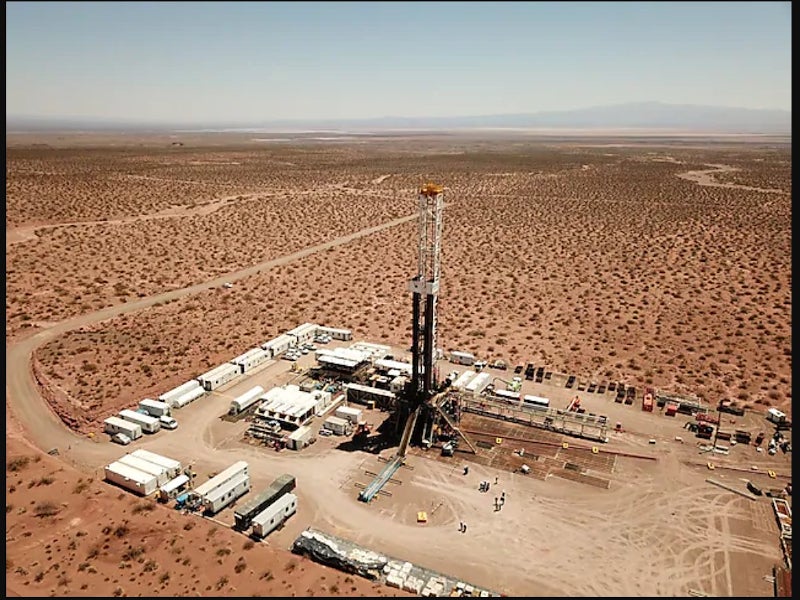Argentina, a country that is known for producing some of the greatest footballers we've ever seen. Diego Maradona, Lionel Messi, Mario Kempes, Gonzalo Higuain and the list goes on.
Today we're going to learn about how geography has influenced this country's past and how it can shape it's future.
A hundred years ago it was among the ten richest countries in the world, ahead of France and Italy. But a failure to diversify, a stratified and unfair society, a poor education system, a succession of coups d’état, and the wildly differing economic policies in the democratic period of the last thirty years has seen a sharp decline in Argentina’s status.
 |
| Buenos Aires |
Argentina needs to get it right, and a dead cow may help it.
The Dead Cow, or Vaca Muerta, is a shale formation that, combined with the country’s other shale areas, could provide Argentina’s energy needs for the next 150 years with excess to export. It is situated halfway down Argentina, in Patagonia, and abuts the western border with Chile. It is the size of Belgium—which might be relatively small for a country but is large for a shale formation. So far so good, unless you are against shale-produced energy. But there is a catch. To get the gas and oil out of the shale, it will require massive foreign investment, and Argentina is not considered a foreign-investment-friendly country.
 |
| Vaca Muerta field is being developed by YPF, Argentina’s state-owned oil and gas company. Image courtesy of Shell." |
There’s more oil and gas farther south—in fact, so far south it’s offshore in and around islands that are British and have been since 1833. And therein lies a problem, and a news story that never goes away.
What Britain calls the Falkland Islands are known as Las Malvinas by Argentina, and woe betide any Argentine who uses the F word. It is an offense in Argentina to produce a map that describes the islands as anything other than the “Islas Malvinas,” and all primary school children are taught to draw the outlines of the two main islands, west and east. To regain the “Little Sisters” is a national cause for successive generations of Argentines and one that most of their Latin neighbors support.
In April 1982, the British let their guard down and the Argentinian military dictatorship under General Galtieri ordered an invasion of the islands—which was considered a huge success until the
British task force arrived eight weeks later and made short work of the Argentinian army and reclaimed the territory. This in turn led to the fall of the dictatorship.
If the Argentine invasion had happened in the last decade, Britain would not have been in a position to retake the islands, as it had no functioning aircraft carriers, a situation that has now changed, thus closing Argentina’s window of opportunity. However, despite the lure of oil and gas, an Argentinian invasion of the Falklands is unlikely for two reasons.
First, Argentina is now a democracy and knows that the vast majority of Falkland Islanders wish to remain under British control; second, the British, once bitten, are twice shy.
They have several hundred combat troops on the islands, along with advanced radar systems, ground-to-air missiles, four Eurofighter jets, and probably a nuclear attack submarine lurking nearby most of the time. The British intend to prevent the Argentinians from even thinking they could get onto the beaches, let alone take the islands.
The Argentine air force uses planes that are decades behind the Eurofighter, and British diplomacy has ensured that an attempt by Argentina to buy up-to-date models from Spain was called off. Buying from the United States is a nonstarter due to the Special Relationship between the UK and United States, which is indeed, at times, special; so the chances of Argentina being in a position to mount another attack are slim.
 |
| Argentina's financial crisis |
However, that will not calm the diplomatic war, and Argentina has sharpened its weapons on that front. Buenos Aries has warned that any oil firm that drills in the Falklands/Malvinas cannot bid for a license to exploit the shale oil and gas in Patagonia’s Vaca Muerta field. It has even passed a law threatening fines or imprisonment for individuals who explore the Falklands’ continental shelf without its permission. This has put many big oil companies off, but not of course the British. Thus, the cold war between these two nations continues.
Despite all its challenges, one is left to wonder. Should Argentina somehow destroy it's economic roadblocks, what can this country achieve? How far can they go towards the top?
But for now, Argentina is as far down south in the list of world leaders, as it is down south from the United States on a map.